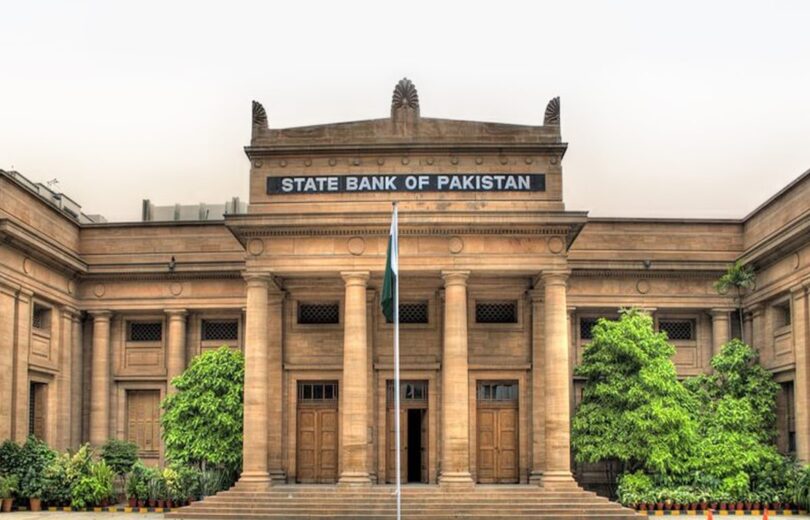The SBP’s Monetary Policy Committee has decided to maintain the current interest rate of 22 percent for another 2-month term. The SBP Governor and the monetary policy committee members told the media that there has been a significant improvement in the foreign exchange reserves which exceeded 8 billion dollars at this point. The Central Bank authorities forecasted that steady growth is likely to curb the headline inflation up to 23 to 25 percent by the end of the current financial year.
The Central Bank’s narrative regarding the improvement in economic conditions and the continuation of a historic high-interest rate of 22% for a straight several months is somewhat harmful if not disastrous. Pakistan is witnessing the highest-ever interest rate in South Asia, which is not only counterproductive for the national economy but is indicative of some emergency situations in the country. The interest rate is a key tool used by the central bank to regulate the economy and control money trading by the private banks. The lower interest rates facilitate the money borrowing by households and businesses along with encouraging investment to stimulate economic growth. Conversely, higher interest rates curb money borrowing, discourage domestic/foreign investment, and slow down economic growth.
Following the 2022 floods and the acute financial pressures earlier in the year, economic activity has stabilized and inflation has begun to gradually decline on the back of strong policy adjustment, however, political uncertainty and unstable foreign reserves largely marred the gains of the South Asian economy. Historically, the Central Bank remained focused on the traditional measures of policy adjustment concerning interest rates and trading of bonds/ certificates while totally ignoring the lucrative cryptocurrency market and manipulation of online sales/purchase markets that is almost equal to the traditional global economy. This is the field that does not demand bulk domestic/ foreign investment, imports, exports or other costly endeavors but needs mental work and brainstorming from the central bank’s high ups in respect of legislation, regulation, and strict monitoring. A majority of the world nations have regulated cryptocurrency and successfully grasped limitless dividends of the cryptocurrency market. The State Bank must look for alternative fields to steer the nation out of persistent economic frality, otherwise continuous high policy rates have sunk the businesses, and slowed down the economy in the past two years.







